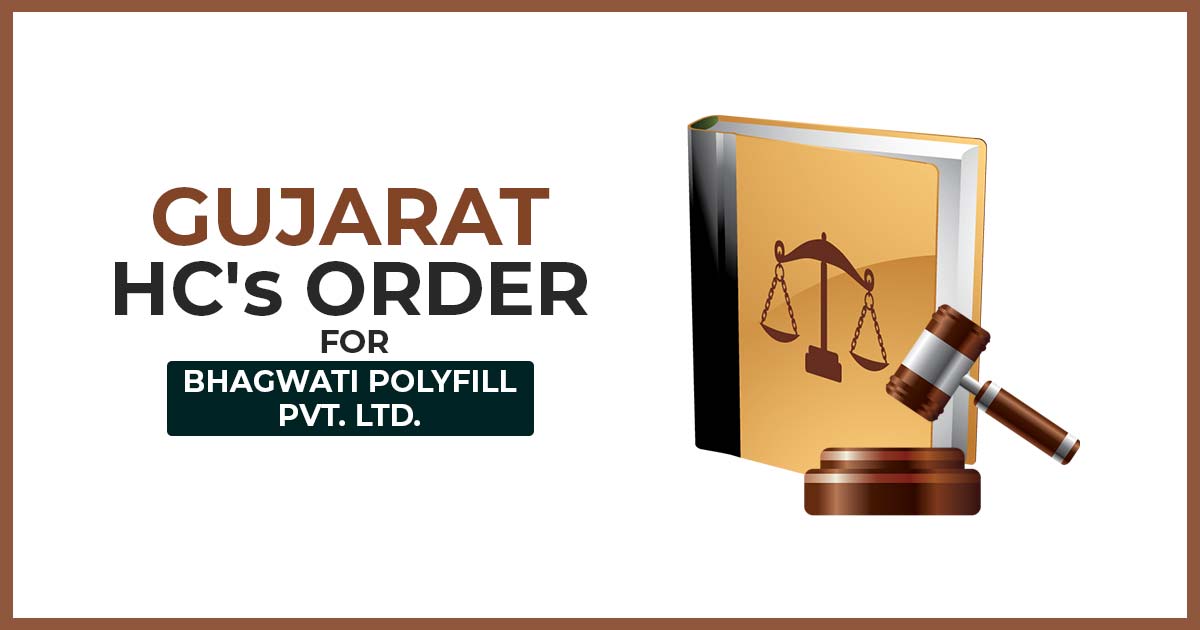
The recent ruling by the Gujarat High Court emphasized the necessity of concrete evidence and a legitimate rationale to support the notion that income has been overlooked in assessments.
This decision holds considerable weight in evaluating the validity of reopening assessments when the reasons provided lack a direct link between the taxpayer and the contentious transaction.
Justices Biren Vaishnav and Bhargav D Karia noted that upon reviewing the provided reasons, there was a lack of substantial evidence beyond stating the petitioner’s connection with Mr. Kamal Zaveri and asserting that certain entities, Jay Traders and Shubham Enterprise, served as conduits for obtaining unsecured loans. No specific details or statements were presented to establish a clear link between the petitioner and the transaction under scrutiny.
Read Also:- Kerala HC: SCN Response Time of 4 Days is Considered Invalid as Per IT Act’s Provision
The bench highlighted that the reasons seemed to suggest an instance where the revenue authority engaged in a speculative investigation without concrete evidence on record.
This appeared to be a case of suspicion, especially given that the inquiry was conducted subsequent to a thorough scrutiny assessment. Insufficient tangible evidence existed to support the conclusion or establish a “reason to believe that the income subject to taxation had been overlooked.”
Additionally, the court pointed out that the actions of the revenue respondent seemed to indicate an attempt to conduct an expansive and unrestricted investigation under the pretext of reopening the assessment—a practice considered impermissible under Section 148 of the IT Act.
The ruling stemmed from a petition filed by Bhagwati Polyfill Pvt. Ltd., challenging the legitimacy of a notice issued under Section 148 of the Income-Tax Act, 1961, for the Assessment Year 2012-13.
The petitioner, a manufacturing company specializing in yarn sizing, had received unsecured loans during the 2011-12 financial year, some of which remained outstanding at the end of the relevant year for Assessment Year 2012-13.
Submitting its income tax return on 30.09.2012, the petitioner underwent a scrutiny assessment. A notice under sec.142(1) of the Act, dated 20.10.2014, was issued, seeking various details, including information on the refund of unsecured loans.
Read Also:- Step-by-Step Guide To File Income Tax Return FY 2022-23
Responding to comprehensive submissions on 5.11.2014 and 25.02.2015, the petitioner did not face any additions related to unsecured loans in the Assessment Order issued on 16.03.2015.
After receiving a notice dated 30.03.2019 under Sec.148 of the Act, the petitioner filed their income tax return on 29.04.2019. Objecting to the reopening, they raised objections on 03.07.2019, which were addressed through an order dated 27.08.2019, providing justifications for the reopening.
Upon thorough examination of the available records, the Court found that the notice issued on 30.03.2019 sought to reopen the assessment for the year 2012-13, extending beyond the four-year period. Therefore, the burden rested on the revenue to demonstrate that the assessee had not fully disclosed their income.
The Court noted that the grounds cited by the Income Tax Department for reopening the case relied more on suspicion than concrete evidence. While the petitioner’s connection with Shri Kamal Zaveri and entities such as Jay Traders and Shubham Enterprise was mentioned, the department failed to furnish substantial proof establishing a direct link between the petitioner and the scrutinized transactions.
Emphasizing the necessity of a valid reason to believe that taxable income had been omitted for justifying a reopening, the Court highlighted the absence of such a foundation in this scenario. It criticized the department’s approach, labelling it as a speculative and exploratory investigation lacking substantial evidence.
Furthermore, as the reopening occurred beyond the four-year limit, the onus lay with the Income Tax Department to prove the petitioner’s failure to fully disclose their income. Contrary to the department’s assertion, the Court concluded that the petitioner had adequately disclosed information regarding the unsecured loans.
The court emphasized, “Upon reviewing the material, income disclosure, and the petitioner’s responses during the scrutiny assessment, it’s evident that the petitioner provided sufficient justification regarding the unsecured loans.”
The department lacked substantial evidence to substantiate the reopening of the assessment. Although they referenced a survey involving Shri Kamal Zaveri, they failed to establish a concrete link between the petitioner and the alleged accommodation entries.
“Therefore, based on these reasons, the notice dated 30.04.2019 issued under Section 148 of the Income-Tax Act, 1961 for the Assessment Year 2012-13, is nullified and dismissed. Accordingly, the petition is granted, and the ruling is absolute,” concluded the Court.
| Case Title | Bhagwati Polyfill Pvt. Ltd. Versus The Assistant Commissioner Of Income Tax |
| Citation | R/Special Civil Application No. 17669 Of 2019 |
| Date | 25.09.2023 |
| Gujarat High Court | Read Order |









